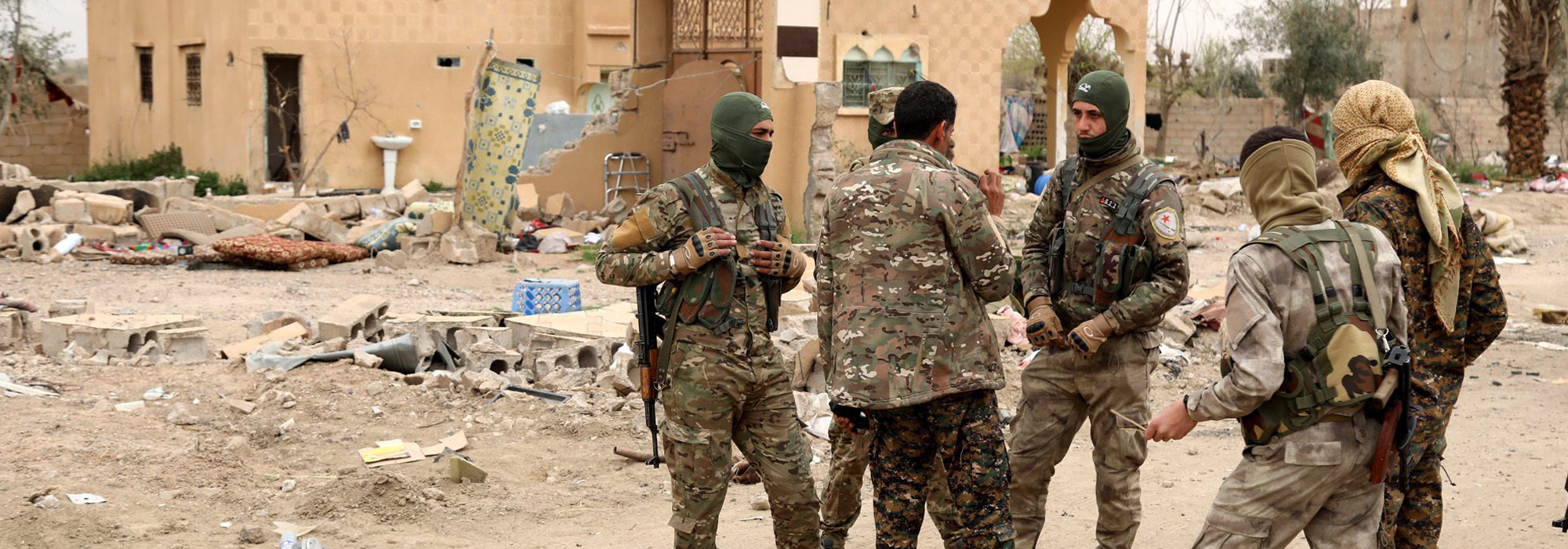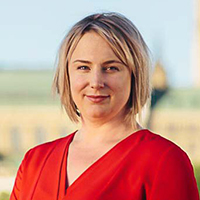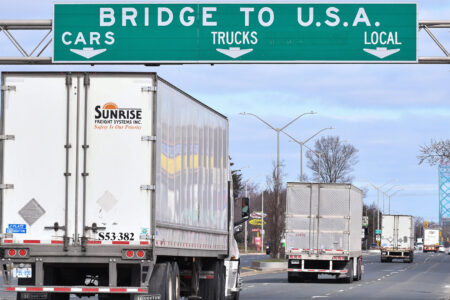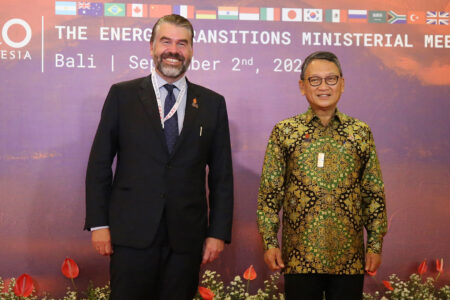
In the spring of 2018, Rukmini Callimachi, a national security reporter with The New York Times, published a podcast series titled “Caliphate. ” Canadian listeners were shocked to hear the voice of a young man named Abu Huzaifa (his nom de guerre) admit to Callimachi that he had carried out executions as a member of ISIS in Syria before returning home to the comforts of Toronto.
The Canadian political establishment erupted. “The media are reporting this individual is in Toronto, right now, as we speak,” Conservative House leader Candice Bergen said in the House of Commons, demanding answers from the Liberal Party of Canada. “Can the government confirm it? Why isn’t this government doing something?”
A year has passed, and we are still asking the same questions. The government needs to articulate its plan to charge, repatriate and prosecute – or reintegrate – Canadians who remain in Syria. It must also publicly account for how and why people like Huzaifa have been able to leave this country to join ISIS and later return to Canada without consequence.
Canadians among fleeing ISIS members
Since Callimachi’s reporting, the situation on the ground in Syria has changed. In early February 2019, coalition and Syrian Democratic Forces (SDF) reduced the ISIS caliphate to few tent cities on the banks of the Euphrates River. As the SDF pushed incrementally forward into the town of Baghuz Fawqani, they stopped to allow the evacuation of civilians and surrendering ISIS members.
Among the flood of individuals leaving the final ISIS-controlled areas were Americans, Canadians and Europeans; many of them young English-speaking women with their babies. The battle of Baghuz came to an end on March 23, 2019, a month and a half after it began. The crumbled caliphate left behind thousands of prisoners from close to 50 countries, now in the care of Kurdish forces.
In the preceding years, somewhere between 90 to 100 people left Canada to join a variety of rebel and jihadist groups in Syria and Iraq. At least 23 died in battle (according to our research), while others like Huzaifa are presumed to have returned home or fled the region. Six Canadian men remain in Syria, imprisoned by the Kurds in the northeastern part of the Country. Another nine women and 17 children (almost all under the age of 5) are housed in camps nearby.
The longer these Canadians are imprisoned, the more likely it is they could be transferred to the Syrian or Iraqi governments (both of which have appalling human-rights records); or they could be released, or escape (as we know some have already).
Why repatriate?
If freed, those still devoted to ISIS could reconnect with cells in the region or pay smugglers to help them reach Europe. Once free, these individuals could engage in further terrorist activity such as financing, recruitment, radicalization and, of course, terrorist attacks. Individuals with any experience in the Islamic State would likely be considered an asset by a terrorist cell – not only for their propaganda value but for the skills they could bring to bear on an attack.
Aside from the need to mitigate this threat, there are two other core reasons to repatriate these Canadians. First, the atrocities these people supported, facilitated or committed against innocent civilians in a foreign country started here. They radicalized in Canada, and our security agencies failed to prevent them from traveling abroad despite our international commitments to prevent terrorism. To now expect the civilians whose country was terrorized by ISIS to take responsibility for our citizens, and to ask that they please do so in accordance with their international human-rights obligations is to shirk our responsibilities as a nation.
Second, Canada’s repeated failure to ensure the safe treatment and repatriation of our citizens detained in Syria, Egypt and Guantanamo Bay as part of the “war on terror” resulted in more than a decade of protracted and costly litigation, and two commissions of inquiry. Six men (Arar, Almalki, Abou- Elmaati, Nureddin, Abdelrazik, Khadr) who our security agencies were once relieved to have off Canada’s streets because of their apparent links to terrorism received apologies and multimillion-dollar settlements because the government’s (in)action ultimately contributed to their mistreatment at the hands of brutal foreign states. Sticking our head in the sand last time cost Canadian taxpayers dearly. There is no reason to think the result will be any different this time.
To mitigate these risks and uphold our responsibilities, it is critical that Canada repatriate these individuals; the sooner the better. But what do we do with them?
Accountability for crimes committed
The government has repeatedly asserted that they will be held accountable for any crimes committed. However, when pressed as to why none of the individuals in the camps (and others already home) has charged with a crime, we are lectured on how difficult it is to turn intelligence collected overseas into evidence for trial. (A problem some of us have been urging successive governments to address, to no avail, for almost a decade).
While this is a legitimate problem, it is also true that every adult who left this country to join ISIS or to support the growth of the so-called caliphate committed the offence of leaving Canada to participate in the activity of a terrorist group. The RCMP could collect evidence of this offence from within Canada. Travelers certainly communicated with others about their plans, purchased airline tickets in this country, and could have left behind a trail of other electronic information. The downside to charging only this offence, however, is that it does not adequately reflect the horrifying conduct that some might have engaged in while in ISIS territory.
To bring most other charges, the RCMP would need evidence of what these people did abroad. Fortunately, many of these Canadians have spoken to allied security services and journalists overseas, and some had prolific social media accounts documenting their crimes. This is not to say that any prosecution would be a slam dunk, but it’s worth noting that despite all of the available information, not one of the Canadians in foreign custody has thus far been charged.
Asked recently why these Canadians remain overseas without charge, the prime minister deflected the question by pointing to RCMP independence. But it is the attorney general who must approve the laying of terrorism charges and offences under the War Crimes and Crimes Against Humanity Act (the few that criminalize conduct by Canadians overseas). We also know that the decision to repatriate Canadians is not the RCMP’s. That would fall to the minister of foreign affairs, likely in consultation with the ministers of Public Safety and National Defence if the Canadian Forces were to be involved in their return.
The process won’t be easy
Repatriation would also require coordination with the Americans and other partners on the ground, such as the Iraqi government, the Iraqi Kurds, and the Syrian Kurds who wish to rid themselves of the encumbrance that jailed western foreign fighters represent.
Working with Syrian Kurdish authorities presents major obstacles. For one, the YPG, the dominant group in charge of the Kurdish region in Syria, is made up of the PKK, which is a listed terrorist entity in Canada. As such, Canada has no real relations with those in power in the region. As the Minister of Public Safety, Ralph Goodale, repeats often: These people are “in a war zone half a world away where Canada does not have diplomatic relations.” Very soon, though, this argument could be rendered moot, as the YPG’s ability and willingness to continue to detain these individuals could force Canada’s hand.
The Kurds are shouldering the burden of detaining, feeding and clothing these former ISIS members, and have repeatedly said that they do not want this responsibility. As a non-state actor, they lack the authority to hold trials and incarcerate them long-term. The Kurds are also facing their own issues, notably ongoing threats from Turkey to “root out” Kurdish terrorists, and a Syrian government that could seek to reassert control over their territory. In either case, these conflicts could seriously test the Kurds’ capacity to maintain control over the detention centres. Putting a plan in place now, however unpalatable politically, will avoid having to address this issue in an even more insecure environment should a crisis develop on the ground.
Challenges at home
Upon their return, managing the threat these detainees pose to Canada comes down to monitoring, regardless of whether they are charged and convicted. We know that they have held and may still hold extremist ideas, but whether they will act on them again is an open question. Monitoring these individuals requires intense resources and evidence-based decision-making about when to stop watching them.
Canadians will also have to face the fact that these individuals, sooner or later, must be reintegrated into society. Fortunately, in this area, the Canadian government is better prepared than it was in the early 2000s given the amount of research it has funded on the topic of combatting violent extremism, including the $10 million Kanishka Project and ongoing funding through the Canada Centre. Unfortunately, we do not yet have metrics for discussing how well these programs work or if they are being adapted to deal with foreign fighters. Lessons from Europe suggest that when it comes to both prosecution and reintegration, it is best to begin preparation for an individual’s return as soon as we know he or she has left a conflict zone. This includes trying to identify the reasons why someone has travelled for the purpose of engaging in violent extremism as it will likely play an important role in developing programming for them when they return.
All of this requires a comprehensive, whole-of-government approach. By leaving these Canadians in Kurdish custody, it looks to us like the government has either failed to plan for a threat we all saw coming, or it is jeopardizing Canadian security, the lives of vulnerable children, and our international reputation because it’s an election year. Neither option makes for good optics or sound policy.
This article was contributed with the support and assistance of the other founding editors of Intrepidpodcast.com: Stephanie Carvin, Craig Forcese, Thomas Juneau, and Michael Nesbitt.
Photo: Fighters of the Syrian Democratic Forces (SDF) take part in a military operation in the village of Baghuz, Syria, on March 24, 2019. EPA/Ahmed Mardnli
Do you have something to say about the article you just read? Be part of the Policy Options discussion, and send in your own submission. Here is a link on how to do it. | Souhaitez-vous réagir à cet article ? Joignez-vous aux débats d’Options politiques et soumettez-nous votre texte en suivant ces directives.










